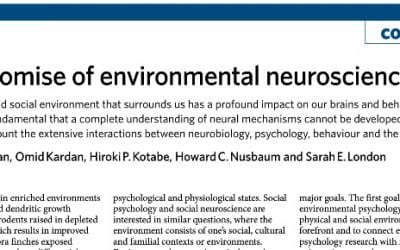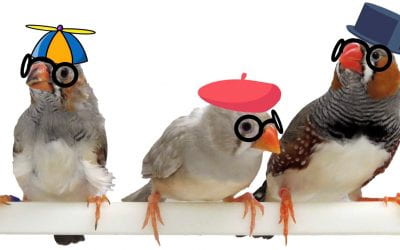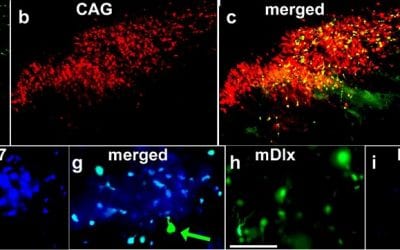The neurogenomics of learning potential
Why does the same experience have different effects on brain and behavior depending on how old the animal is?
This is the fundamental question we attempt to answer. We study how and why young animals can learn complex behavior during a restricted “critical period” in development.
Learned behavior requires established yet flexible neural circuitry, receptivity to acute experience, and mechanisms to stably encode those experiences so they can influence future action. We investigate how the interplay between genes and experience alter the developmental organization of a neural circuit required for a complex learned behavior, birdsong. Specifically, we aim to identify the neural mechanisms that promote and limit a young bird’s ability to learn song during the natural critical period for song acquisition.
We use a combination of molecular biology and genomic techniques, in vivo molecular manipulations, and behavioral assays to draw interconnections between neurogenomic activation and behavior. The zebra finch is a powerful model for these studies because the majority of their brain development occurs after hatching, birds grow up in a complex social environment, they can memorize “tutor” song during only one period in development, there are major sex differences in brain and behavior, the neural circuitry required for developmental song learning is known, the genome is sequenced, and the molecular and genomic tools available to probe neural function are constantly advancing.
We take advantage of the natural biology of the zebra finch to discover mechanisms by which coordinated early life experience and genetic programming direct organization of a neural circuit that controls stable behavior. The long-term goals are to identify what state of neural development is necessary for experience to be learned, how experience alters neural function, how social interactions with potential tutors influence song copying, and how experience becomes encoded in neural structures to have long-term consequences on behavior.
NEWS
Hot off the presses!
New comment in Nature Human Behavior
2019 Songbird meeting at SfN in Chicago is shaping up!
Juveniles and females are the theme…
Cell-type selective gene expression
Tantalizing new data showing we can drive reporter gene expression off of enhancer sequences




